Experimental Gardens
As part of the Nutrition Development Unit’s aim to, as they saw it, ‘improve’ the diet and overall health of the population of Nyasaland, gardens were established in the villages as a means to assure a ready ‘supply of green leaves and fruit throughout the year’ (Jessie Barker, The Feeding of Africans in Nyasaland)
In her pamphlet The Feeding of Africans in Nyasaland Jessie Barker describes the project in detail.
Jessie Barker – Feeding Africans in Nyasaland, Ch.2, p.8.
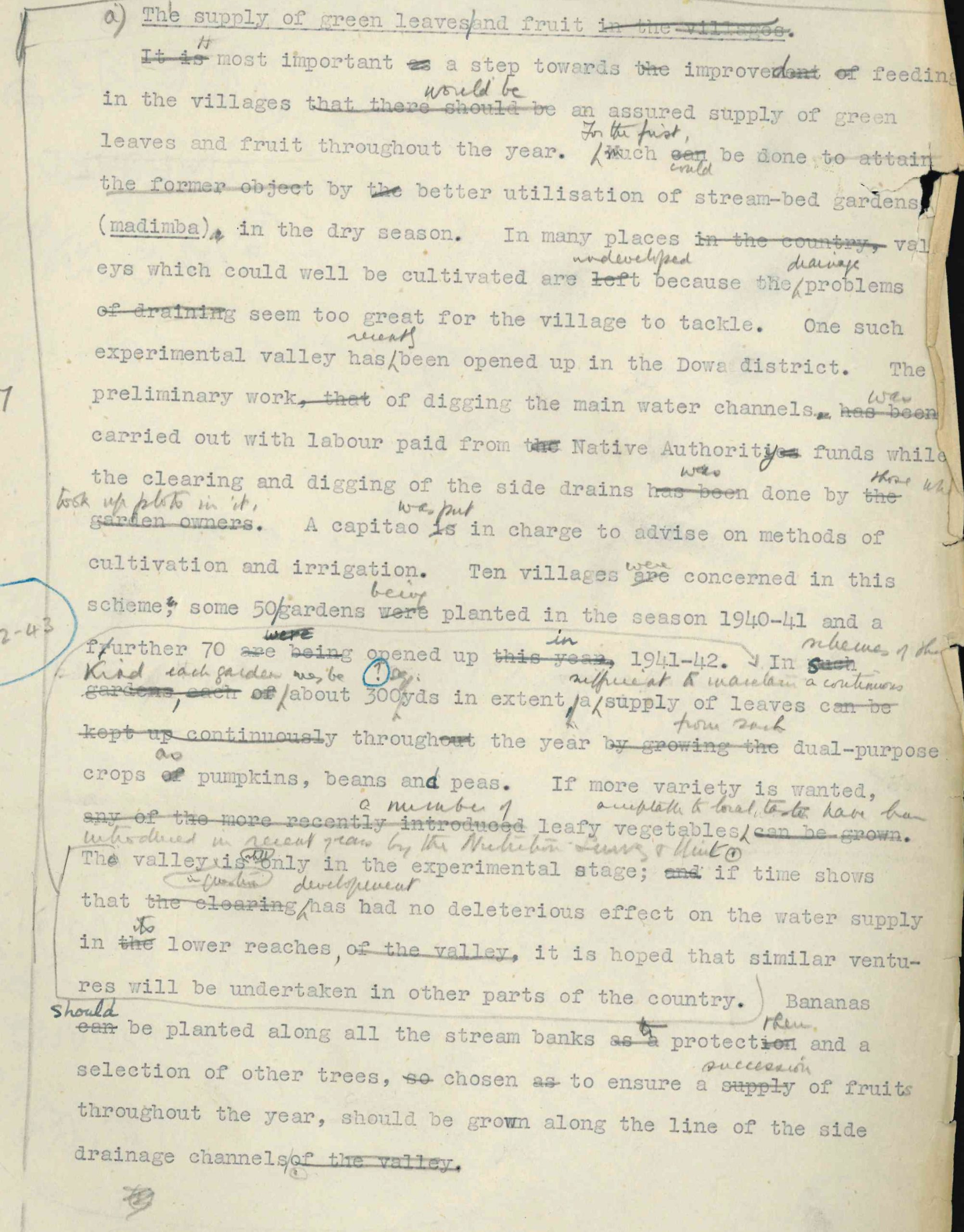
According to Barker, the local people had failed to use their land efficiently owing to problems with drainage – a problem she believed could be overcome with input from the Nutritional Development Unit. The planned stream-bed gardens or ‘madimbas’ as they were referred to, were developed with what were hoped to be effective drainage channels, overseen by a local ‘capitao’.
The project started with 10 villages in the scheme. Provided the irrigation systems had ‘no deleterious effect’ on water supplies the plan was to roll the gardens out across the country
Much of Barker’s time was spent inspecting the gardens and recording their progress in her diary.
Jessie Barker’s Diary – 24 October 1940
Jessie Barker’s Diary – 13 December 1940
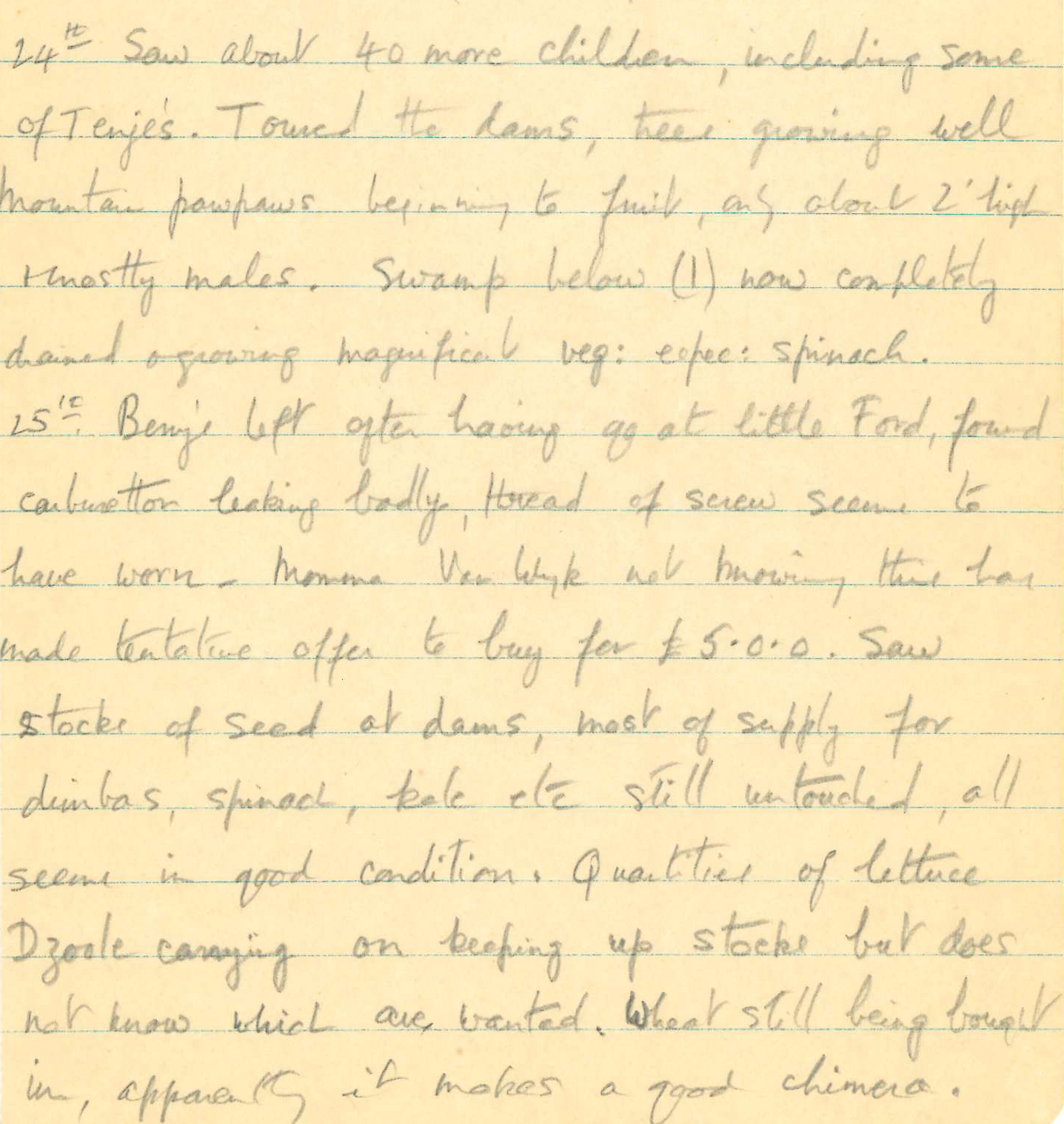
From the perspective of the Nutrition Development Unit the stream-bed gardens initially seemed to be a success, with Barker reporting fruit trees thriving, good drainage and beds of ‘magnificent’ vegetables.
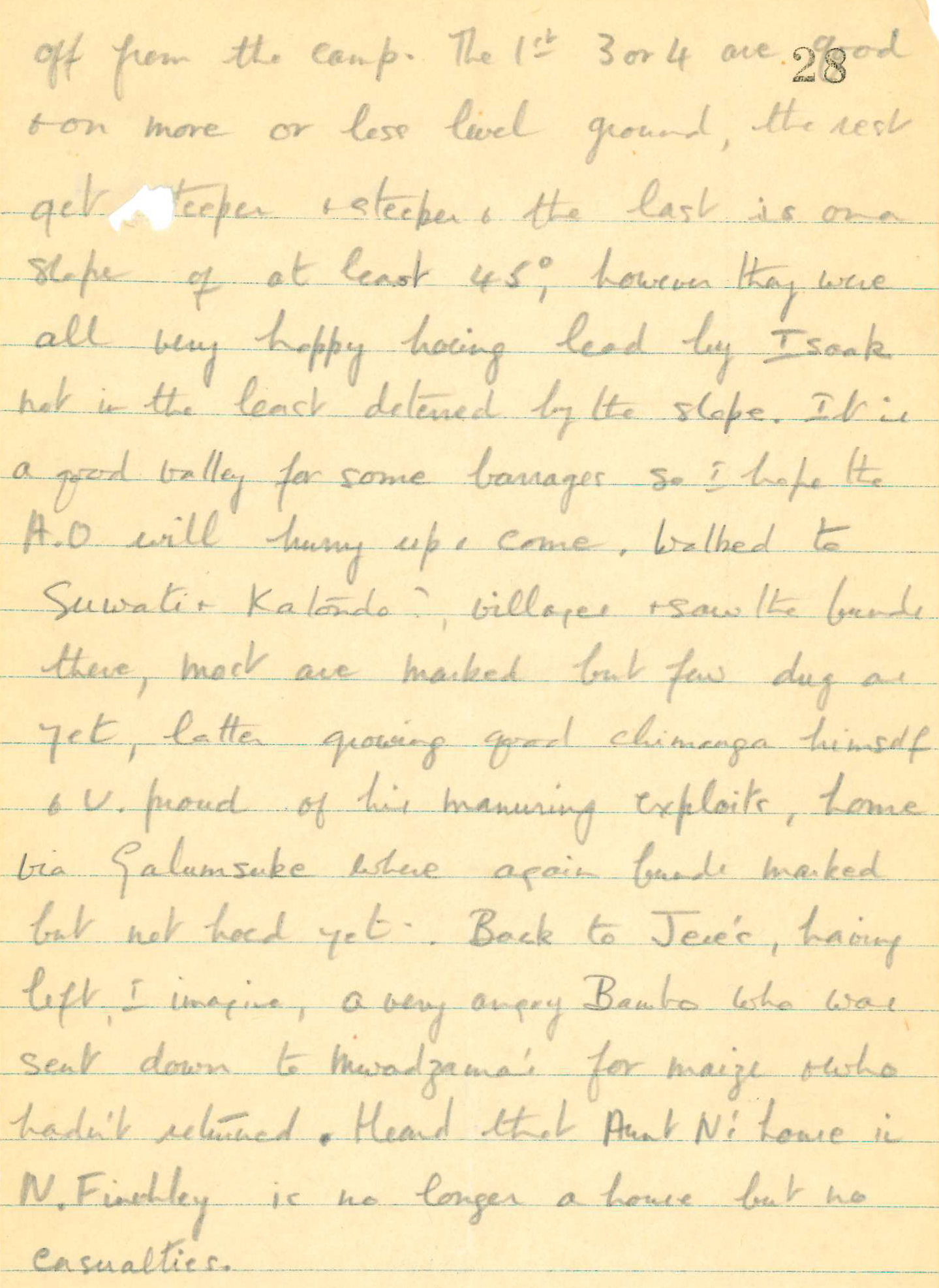
Here there is a sense of colonial ideas – in this case the vegetable gardens – being quite literally imposed onto a hostile landscape. Barker, ignoring the difficulties encountered when cultivating land on a 45 degree slope, describes the local gardeners as ‘happy’ and ‘undeterred by the slope’.
Jessie Barker’s Diary – 17 December 1940
Jessie Barker’s Diary – 19 December 1940
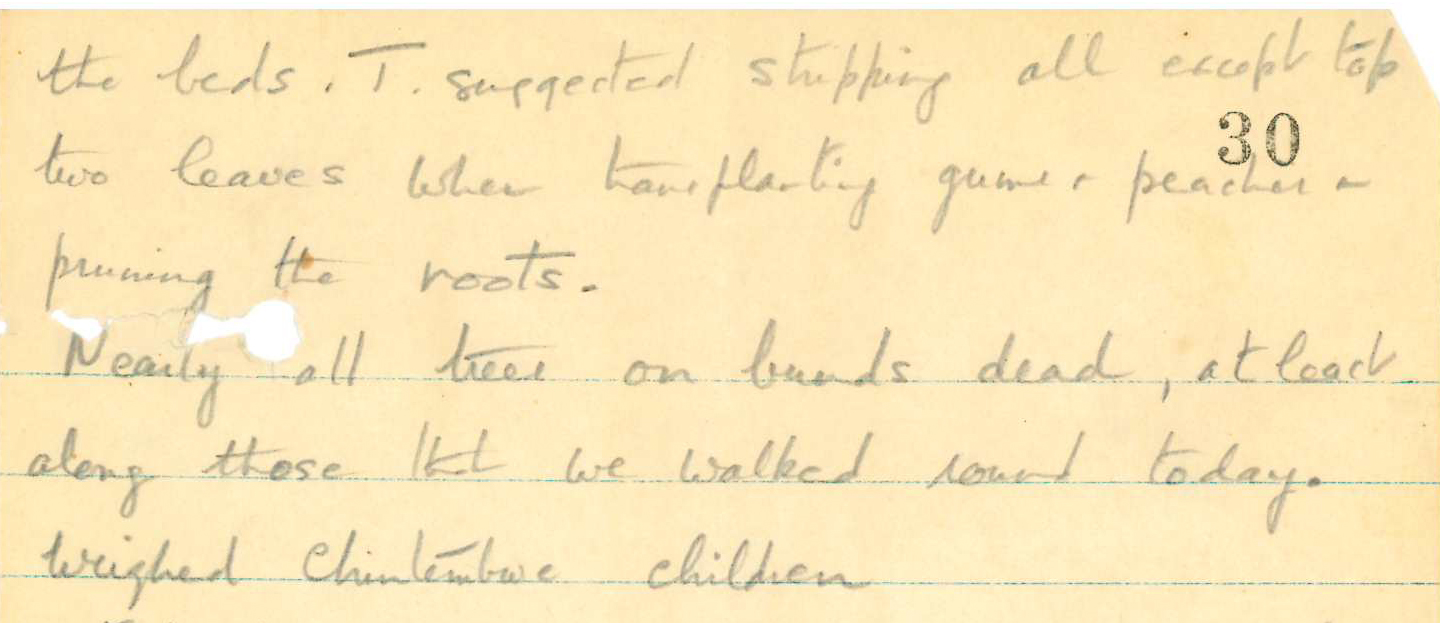
This report of trees dying in the bunds can be interpreted as a rejection of Barker’s interventions, by the very landscape she was attempting to harness and control.
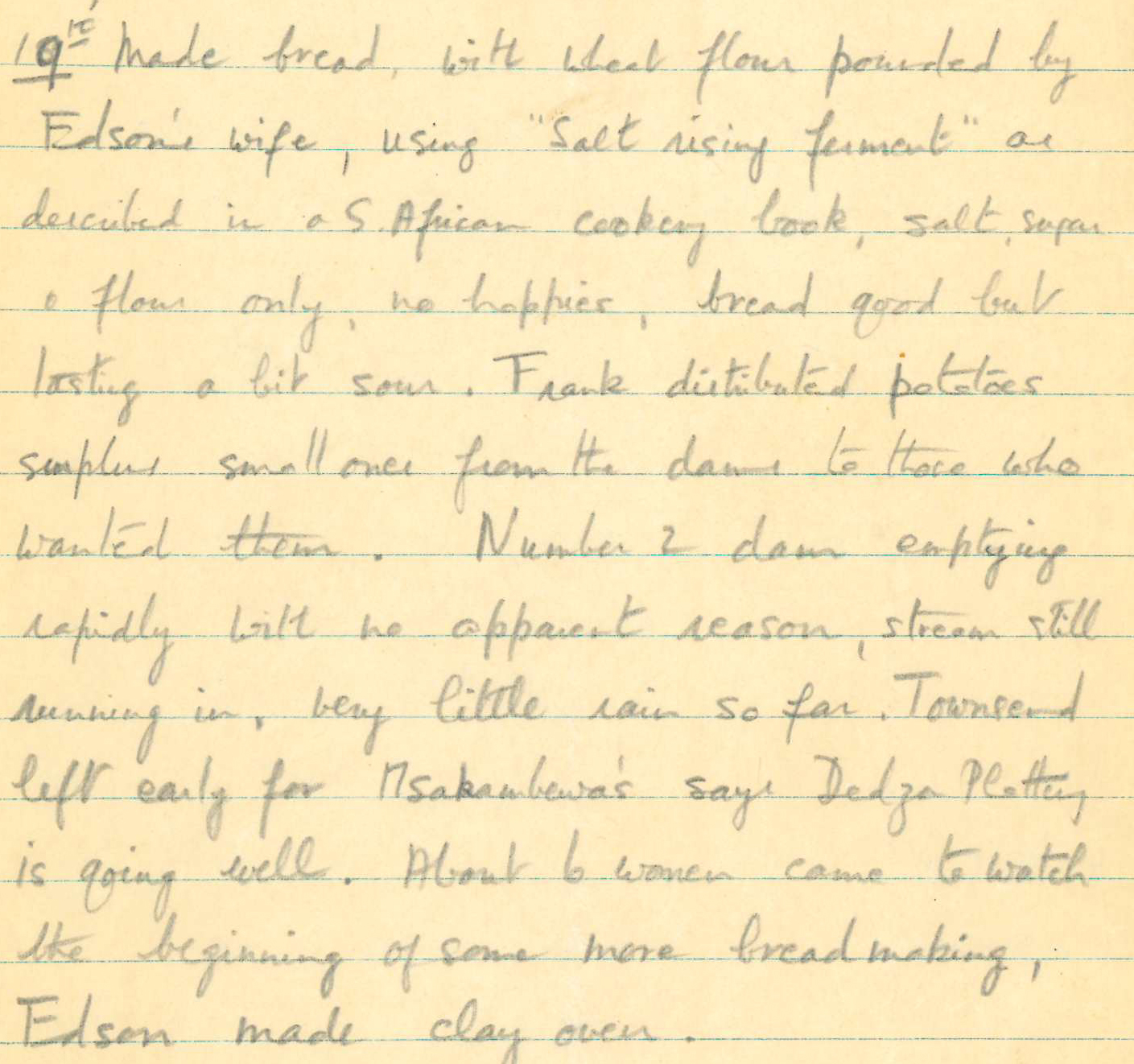
Despite Barker’s certainty that the drainage issues that had prevented local people farming the sloping land around the villages could be resolved by colonial expertise, here she reports issues with a dam ’emptying for no apparent reason’.
